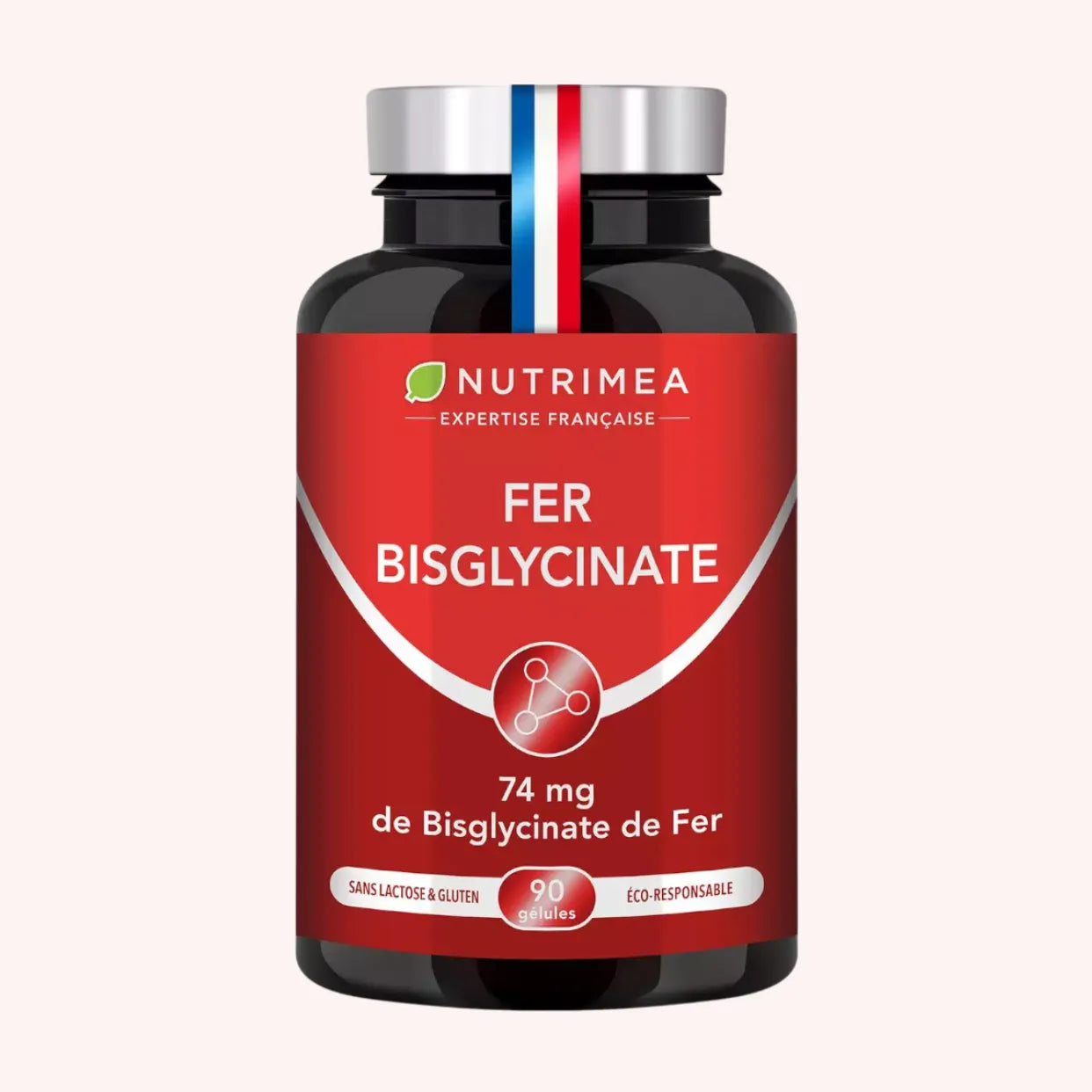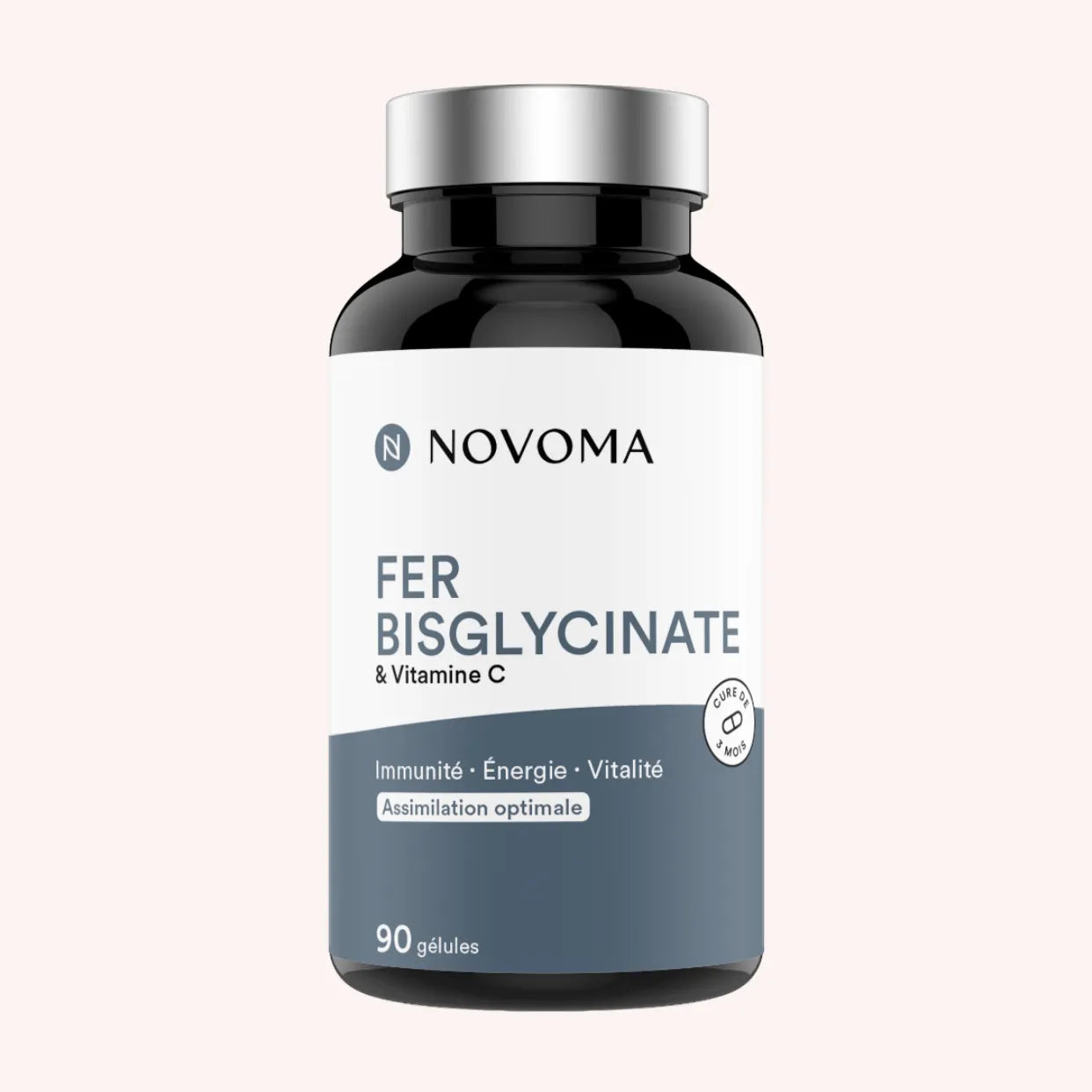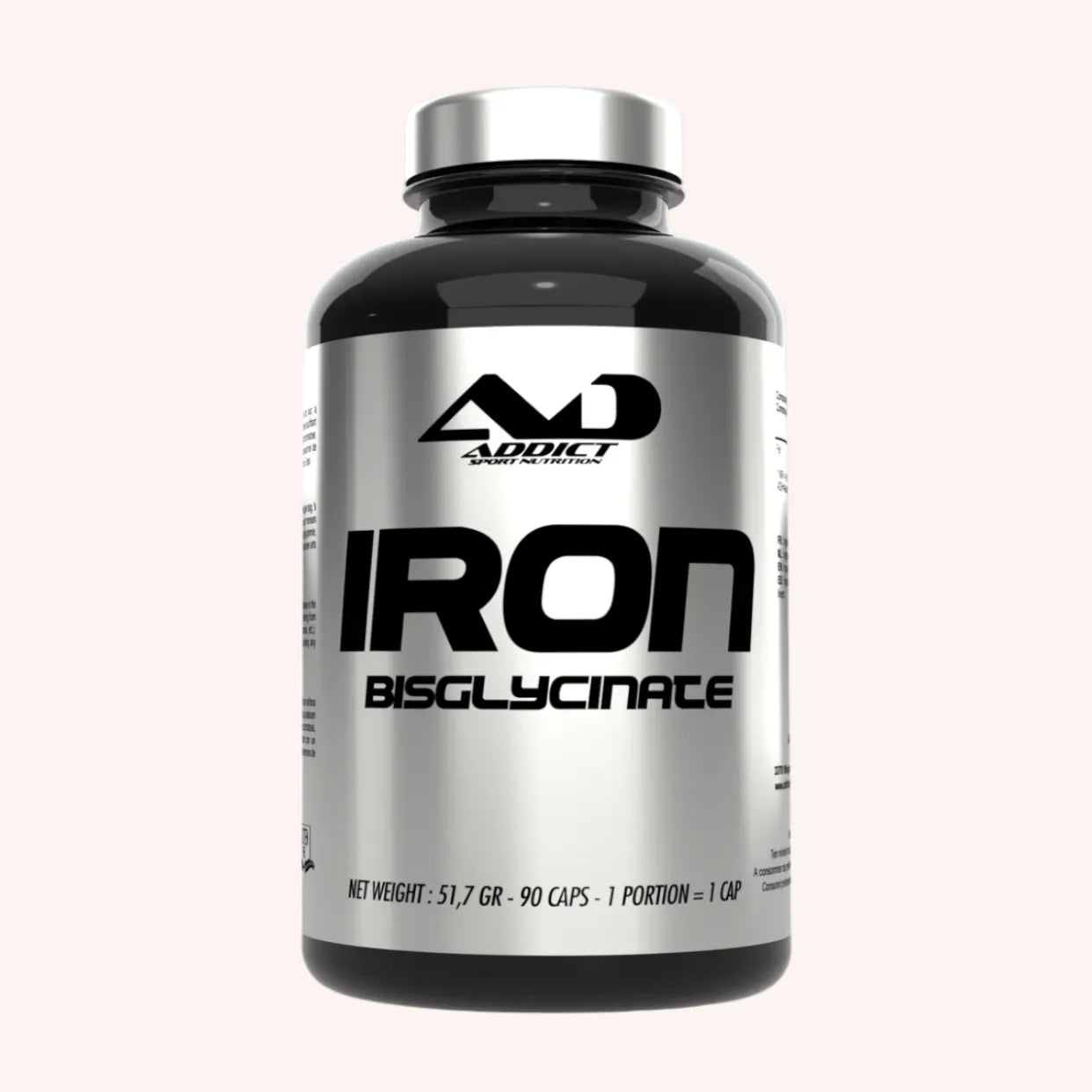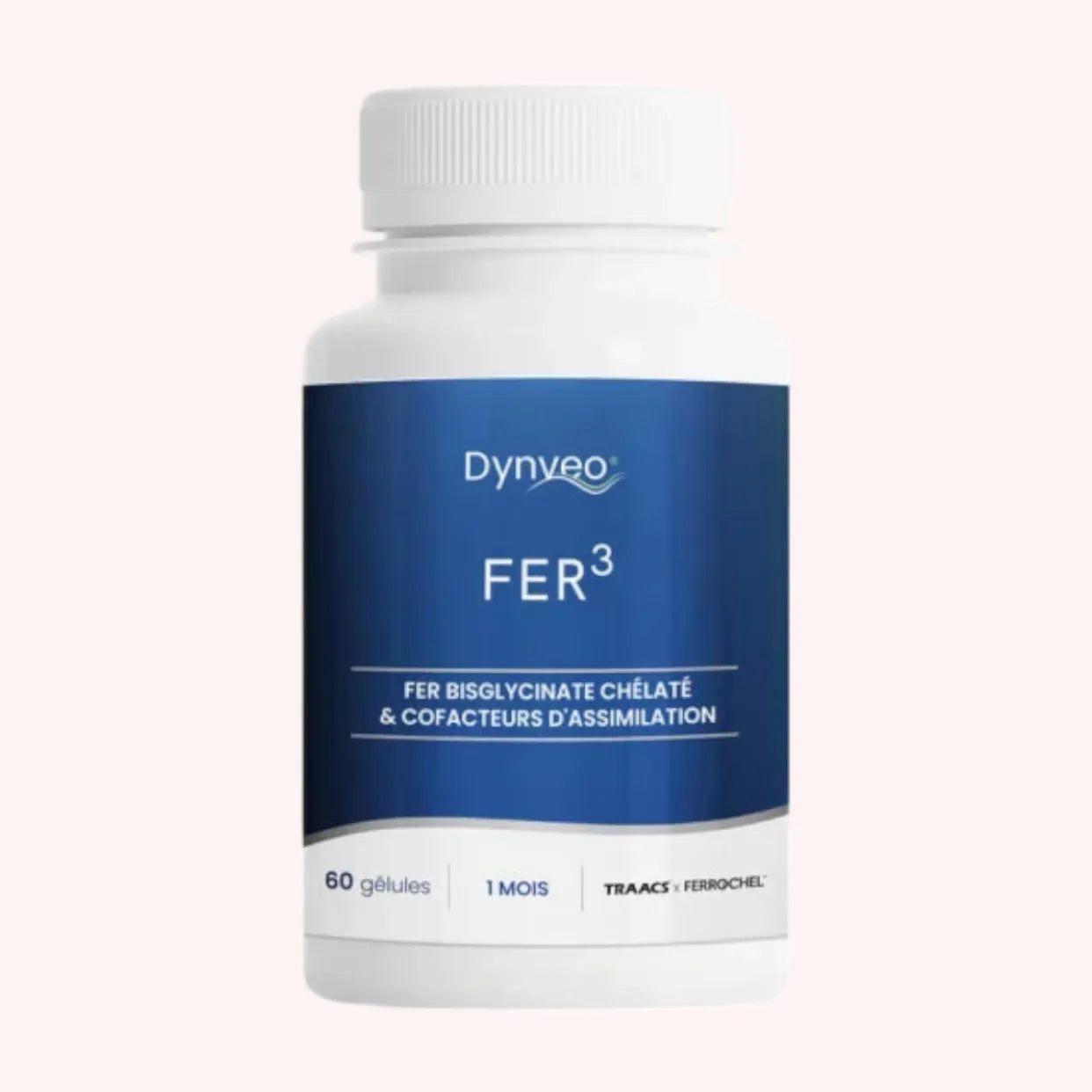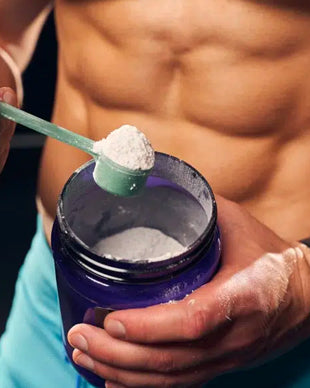4 products
Iron is a trace mineral that is crucial for various biological functions in the body. Known for its many properties, it plays a key role in reducing fatigue, supporting energy metabolism, producing red blood cells, and transporting oxygen. Thus, a good iron supplement is essential for your athletic performance!
Why is it interesting to take iron supplements?
Iron plays a crucial role in the transport and use of oxygen in the body. You can get it through diet or a mineral supplement . It is found in foods in two forms (1):
- Heme iron (70%): Exclusively in animal products, associated with proteins such as hemoglobin.
- Non-heme iron (30%) : Present in a variety of foods, whether of animal or plant origin.
Heme iron is better absorbed than non-heme iron. The absorption of dietary iron depends on the body's iron reserves, the amount of heme iron in the diet. There are also factors that can improve (such as vitamin C) or inhibit (such as tannins in tea) this absorption. Iron is therefore essential for the transport of oxygen by red blood cells and for the activity of certain enzymes. Iron reserves are found in the liver, spleen and bone marrow: They can be mobilized to meet increased needs during situations such as pregnancy or muscle growth (2). But if these reserves are not sufficient, do not worry: the iron food supplement can then meet your needs.
Iron food supplement: What are the benefits?
Improved oxygen transport
Iron is an essential component of hemoglobin, the protein in red blood cells that carries oxygen from the lungs to muscles and other tissues. Adequate iron intake is crucial to maintaining optimal oxygen-carrying capacity, which is essential for athletic performance (especially endurance). This is because iron helps form hemoglobin and myoglobin (a protein that stores oxygen in muscle cells). The higher the hemoglobin level, the more oxygen your muscles receive. Therefore, an iron supplement can support muscle activity and reduce fatigue .
Support for energy metabolism
Iron also plays a crucial role in energy metabolism by being a cofactor for several key enzymes involved in energy production, including the Krebs cycle and the mitochondrial respiratory chain. By participating in the processes of converting nutrients into energy, iron ensures that athletes have the energy they need to sustain their performance. An iron supplement is thus involved in the synthesis of ATP (adenosine triphosphate), the main energy molecule used by cells during physical exercise.
Prevention of anemia and improvement of performance
Iron deficiency can lead to iron deficiency anemia, which is characterized by a reduction in the blood's ability to carry oxygen. For an athlete, this can result in decreased performance, increased fatigue, or slower recovery. By maintaining adequate iron levels, athletes can prevent anemia , which helps maintain optimal exercise capacity and reduce the risk of excessive fatigue. Maintaining adequate levels with an iron supplement ensures efficient oxygen transport and therefore better overall performance.
What minerals work synergistically with iron?
Whether through food or a health food supplement , iron works in synergy with several minerals to optimize its absorption and use in the body:
- Zinc : Zinc and iron are often complementary, although excessive zinc supplementation may interfere with iron absorption. Zinc is crucial for hemoglobin synthesis and some studies suggest that good management of zinc levels may improve iron status.
- Magnesium : Magnesium influences the health of the circulatory system and can aid in the activation of vitamin D, which in turn can improve iron absorption and metabolism.
- Calcium : Calcium can inhibit iron absorption if consumed simultaneously in large amounts. However, careful management of their intake can support bone health without compromising iron status.
- Chromium : Chromium and iron share intestinal absorption pathways and a complex interaction where excess of one can inhibit absorption of the other. However, when balanced, iron helps improve chromium-mediated insulin function, which is essential for glucose metabolism.
- Electrolytes : Potassium and sodium (electrolytes) are important for maintaining adequate fluid balance, which can indirectly affect the circulation and distribution of iron in the body.
In general, a balanced multimineral intake can help ensure that iron and other minerals are consumed in the proper proportions to support iron absorption and overall metabolic functions!
Sources:
(1) Lynch SR, SMJ, Strain JJ, Cabalero B., Iron: physiology, dietary sources and requirements. Encyclopedy of Human Nutrition, 1998: p. 1153-1159.





